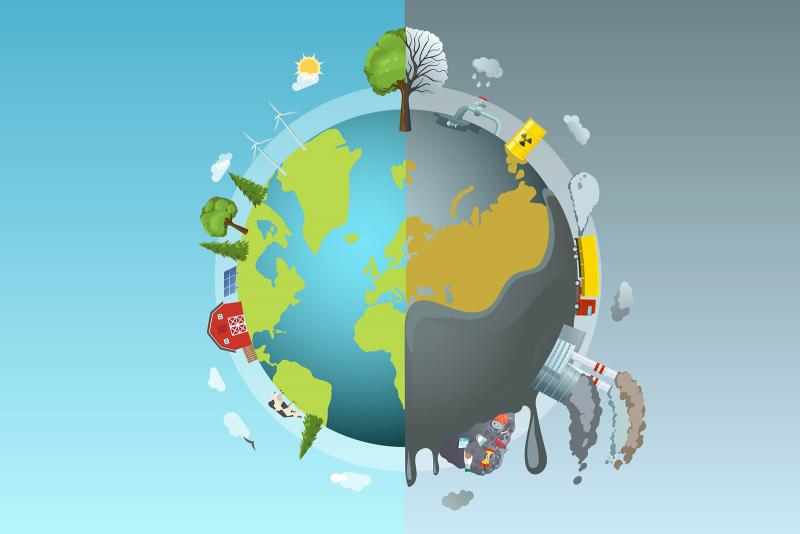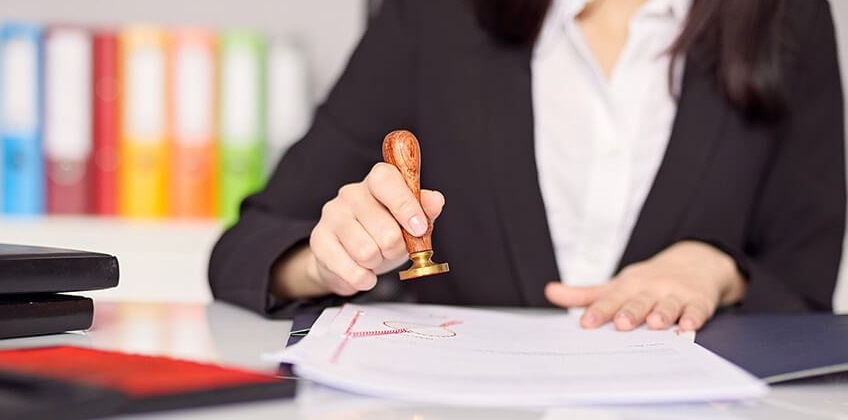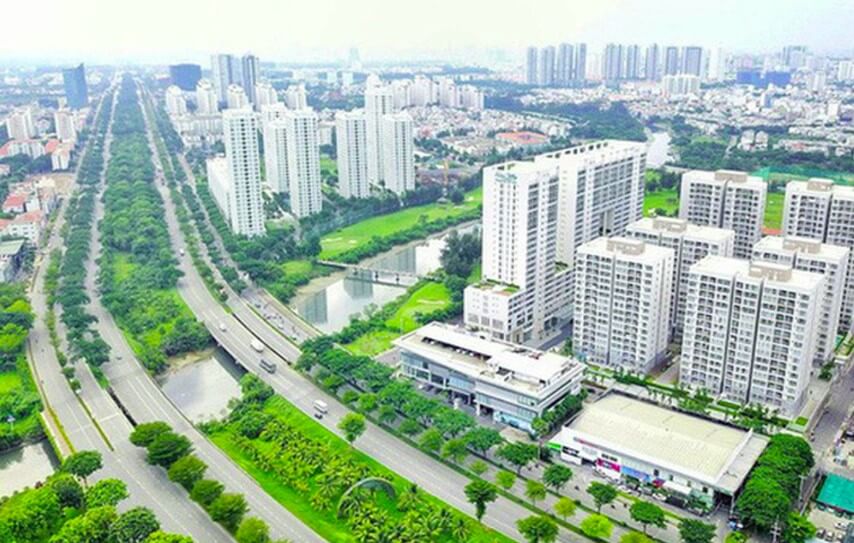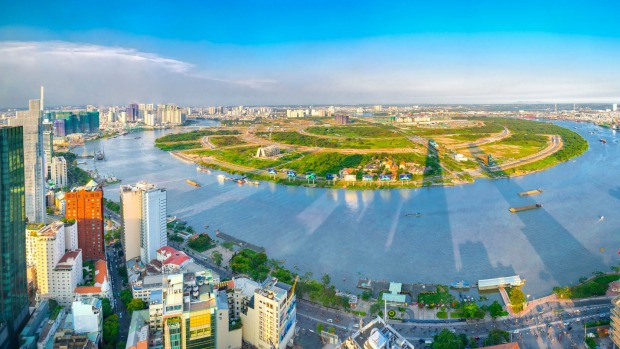Regulations on environmental impact assessment in Vietnam

Vietnam law has regulations on environmental impact assessment. Let’s find out this issue with Lawyer X through the following situation: “Dear Lawyer! I want to ask what are projects subject to EIA? What are contents of environmental impact assessment report? What are regulations on appraisal of EIAR? Thanks for answering my questions!”
Legal grounds
- Vietnam law on Environmental protection
What are projects subject to EIA?
– Projects subject to EIA include:
+ Group I investment projects mentioned in Clause 3 Article 28 of this Law;
+ Group II investment projects mentioned in Points c, d, dd and e Clause 4 Article 28 of this Law.
– If the projects specified in Clause 1 of this Article are urgent public investment projects as prescribed by the Law on Public Investment, they shall not be subject to EIA.
Regulations on carrying out EIA
– The EIA shall be conducted by the investment project owner or a qualified consultancy. The EIA shall be conducted together with preparing the feasibility study report or equivalent document.
– The EIA result shall be presented in an environmental impact assessment report.
– An environmental impact assessment report is prepared for each investment project.
Regulations on contents of environmental impact assessment report
– Main contents of an environmental impact assessment report (hereinafter referred to as “EIAR”) include:
+ Origin of the investment project, project owner, authority approving the project; legal and technical bases; EIA methods and other methods adopted (if any);
+ Conformity of the investment project with the national environmental protection planning, regional planning, provincial planning, regulations of law on environmental protection and other relevant regulations of law;
+ Assessing selected technologies and work items and activities that may result in adverse environmental impacts;
+ Natural, socio-economic and biodiversity conditions; assessment of state of the environment; identifying affected subjects and sensitive environmental factor at the project location; demonstration of the suitability of the project location;
+ Identifying, assessing and predicting major environmental impacts and waste generated in the phases of the investment project quantity and nature of waste; impacts on biodiversity, natural heritage sites, historical-cultural sites/monuments and other sensitive factors; impacts caused by land clearance, migration and relocation (if any); identifying and assessing environmental emergencies that are likely to occur;
+ Works and methods for collecting, storing and treating waste;
+ Methods for reducing other adverse environmental impacts of the investment project; environmental improvement and remediation scheme (if any); biodiversity offsets scheme (if any); environmental emergency prevention and response plan;
+ Environmental management and supervision program;
+ Consultation result;
+ Conclusions, propositions and commitments made by the investment project owner.
– The Minister of Natural Resources and Environment shall elaborate this Article.
Regulations on consultation during EIA
– Consultees include:
+ Residential communities and individuals under direct impact of the investment project;
+ Agencies and organizations directly related to the investment project.
– Responsibility for holding a consultation:
+ The investment project owner shall hold a consultation with the consultees specified in Clause 1 of this Article. It is advisable to consult experts during the EIA;
+ Agencies and organizations mentioned in Point b Clause 1 of this Article shall give a written response to the investment project owner within the prescribed time limit; if the time limit expires and a written response fails to be given, it is considered that such agencies and organizations agree to the consultation contents.
– Contents of a consultation consist of:
+ Location of the investment project;
+ Environmental impacts of the investment project;
+ Measures to reduce adverse environmental impacts;
+ Environmental management and supervision program; environmental emergency prevention and response scheme;
+ Other contents related to the investment project.
– The consultation shall be held by publishing it on websites and adopting one or more of the following methods:
+ Holding a meeting to collect comments;
+ Collecting written comments.
– The consultation result is important for the investment project owner to work out solutions for minimizing environmental impacts and complete the environmental impact assessment report. The consultation result shall be processed and fully and truthfully present comments and propositions made by consultees and entities getting interested in the investment project (if any). If the comments or propositions are objected, the investment project owner is required to provide a clear explanation. The investment project owner shall take legal responsibility for consultation contents and result specified in the environmental impact assessment report.
– Investment projects on the list of state secrets are not subject to consultation.
– The Government shall elaborate this Article.

Regulations on appraisal of EIAR
– An application for EIAR appraisal consists of:
+ An application form EIAR appraisal;
+ The EIAR;
+ A feasibility study report of the investment project or equivalent document.
– For a construction project whose feasibility study report is subject to appraisal by the specialized construction authority as prescribed by the Law on Construction, the project owner is entitled to submit the application for EIAR appraisal together with the application for feasibility study report appraisal; the project owner must submit the application before the verdict on feasibility study report appraisal is available.
– The EIAR shall be appraised as follows:
+ The appraising authority shall decide to establish an appraisal council consisting of at least 07 members; send the council establishment decision together with the documents specified in Points b and c Clause 1 of this Article to each member;
+ At least one-third of the appraisal council’s members are experts. An expert must have expertise in environment or another field related to the investment project and at least 07 years’ working experience if he/she holds a bachelor’s degree or equivalent qualification, at least 03 years’ working experience if he/she holds a master’s degree or equivalent qualification or at least 02 years’ working experience if he/she holds a doctorate degree or equivalent qualification;
+ Experts participating in conducting EIA of the investment project are not allowed to join the council appraising the EIAR of such project;
+ If the investment project discharges wastewater into a hydraulic structure, the appraisal council must have a representative of the regulatory body managing such hydraulic structure; the appraising authority shall collect written comments and reach an agreement with that regulatory body before approving the appraisal result.
The regulatory body managing the hydraulic structure shall appoint a member to join the appraisal council and comment on the approval of the appraisal result in writing within the time limit for comment collection; if such time limit expires and a written response fails to be given, it is considered that such body agrees to the EIAR contents;
+ Council’s members shall consider the application for appraisal, make remarks about the appraisal contents specified in Clause 7 of this Article and take legal responsibility for their remarks;
+ The appraising authority shall consider, evaluate and consolidate comments of council’s members and relevant organizations (if any) to form a basis for deciding to approve the EIAR appraisal result.
– If necessary, the appraising authority shall carry out a survey to collect comments of organizations and experts to appraise the EIAR.
– During the appraisal, if revisions to the EIAR are necessary, the appraising authority shall notify the investment project owner in writing to make such revisions.
– The time limit for EIAR appraisal begins on the date of receiving a satisfactory application and is as follows:
+ Not exceeding 45 days with respect to the Group I investment project mentioned in Clause 3 Article 28 of this Law;
+ Not exceeding 30 days with respect to the Group II investment project mentioned in Point c, d, dd or e Clause 4 Article 28 of this Law.
+ Within the time limit specified in Points a and b of this Clause, the appraising authority shall notify the investment project owner in writing of the appraisal result. The time when the investment project owner revises the EIAR at the request of the appraising authority and the time when the approval decision is considered to be issued as prescribed in Clause 9 of this Article shall not be included in the time limit for appraisal;
+ The time limit mentioned in Points a and b of this Clause may be extended under the Prime Minister’s decision.
– Contents of EIAR appraisal are composed of:
+ Conformity with the national environmental protection planning, regional planning, provincial planning and regulations of law on environmental protection;
+ Conformity of the EIA method and other methods adopted (if any);
+ Conformity of result of identification of a work item or activity likely to result in adverse environmental impacts;
+ Conformity of result of assessment of state of the environment and biodiversity; identification of affected subjects and sensitive environmental factor at the project location;
+ Conformity of result of identification and prediction of major environmental impacts and waste generated from the investment project; prediction of environmental emergencies;
+ Conformity and feasibility of environmental protection works and measures; environmental improvement and remediation scheme (if any); biodiversity offsetting plan (if any); environmental emergency prevention and response scheme;
+ Conformity of the environmental management and supervision program; adequacy and feasibility of environmental commitments made by the investment project owner.
– The Prime Minister shall decide to organize the EIAR appraisal that needs foreign consultants. Result of the EIAR appraisal carried out by foreign consultants shall serve as the basis for the competent authority specified in Article 35 of this Law to approve the EIAR appraisal result.
– Within 20 days from the receipt of the EIAR revised (if any) as requested by the appraising authority, the head of the appraising authority shall decide to approve the appraisal result; in case of refusal to grant approval, respond to the investment project owner and provide explanation in writing.
– The submission of application for EIAR appraisal, receipt, processing and notification of the EIAR appraisal result shall be carried out in person or by post or through the online public service system at the request of the investment project owner.
– The Minister of Natural Resources and Environment shall elaborate organizational structures and operation of appraisal councils; make publicly available list of appraisal councils; forms of documents included in the application for EIAR appraisal and decision to approve EIAR appraisal result; time limit for comment collection specified in Point d Clause 3 of this Article.
Regulaions on power to appraise EIAR
– The Ministry of Natural Resources and Environment shall organize appraisal of EIARs for the following investment projects, except for the investment projects specified in Clause 2 of this Article:
+ Group I investment projects mentioned in Clause 3 Article 28 of this Law;
+ Group II investment projects in Points c, d, dd and e Clause 4 Article 28 of this Law subject to investment guideline decision or approval by the National Assembly and Prime Minister; investment projects involving 02 provinces or more; investment projects located within territorial waters to which responsibility of the provincial People’s Committee for administrative management are yet to be assigned; investment projects subject to issuance of the mineral mining license, license to extract and use water resources, ocean dumping permit and marine area transfer decision by the Ministry of Natural Resources and Environment.
– The Ministry of National Defense and Ministry of Public Security shall organize appraisal of EIARs for investment projects classified as state secrets in the field of national defense and security.
– Provincial People’s Committees shall organize appraisal of EIARs for investment projects within their provinces, except for the investment projects in Clauses 1 and 2 of this Article. Ministries and ministerial agencies shall cooperate with provincial People’s Committees shall appraise EIARs for investment projects subject to investment guideline and decision by such provincial People’s Committees.
Decision on approval of EIAR appraisal result
– The decision on approval of EIAR appraisal result shall serve as the basis for a competent authority to perform the following tasks:
+ Issue and adjust the mineral mining license for mineral mining projects;
+ Approve oil and gas exploration and field development plan for oil and gas exploration and extraction projects;
+ Approve feasibility study reports for public-private partnership investment projects;
+ Give conclusions on appraisal of feasibility study reports for construction projects;
+ Issue environmental licenses;
+ Issue ocean dumping permits; marine area transfer decisions;
+ Issue investment decisions for investment projects not mentioned in Points a, b, c, d, dd and e of this Clause.
– Except for the investment projects classified as state secrets, the appraising authority shall send the decision on approval of EIAR appraisal result to the investment project owner and agencies concerned as follows:
+ The Ministry of Natural Resources and Environment shall send it to the People’s Committee of the province where the investment project is executed and other agencies in accordance with relevant regulations of law. The provincial People’s Committee shall send it to the provincial specialized environmental protection authority, People’s Committee of the district or commune where the investment project is executed and management board of an industrial park, export-processing zone, hi-tech zone or economic zone of the province or central-affiliated city for the investment project executed in the dedicated area for production, business operation and service provision;
+ The provincial People’s Committee shall send it to the Ministry of Natural Resources and Environment, provincial specialized environmental protection authority, People’s Committee of the district or commune where the investment project is executed and management board of an industrial park, export-processing zone, hi-tech zone or economic zone of the province or central-affiliated city for the investment project executed in the dedicated area for production, business operation and service provision.
– If the investment project owner is changed, the new one shall continue to implement the decision on approval of EIAR result and inform the EIAR appraising authority and provincial specialized environmental protection authority.
Responsibility of investment project owner after obtaining decision on approval of EIAR appraisal result
– Revise contents of the investment project and EIAR in conformity with environmental protection contents and requirements set out in the decision on approval of EIAR appraisal result.
– Fully comply with the decision on approval of EIAR appraisal result.
– Send a notification of completion of environmental protection work to the authority approving EIAR appraisal result before officially putting the project into official operation in the case where the project is not required to obtain the environmental license.
– During the preparation and execution of the investment project before being put into operation, in case of deviation from the decision on approval of EIAR appraisal result, the investment project owner shall:
+ conduct EIA of the investment project if there is any change to scale, capacity or production technology or another change resulting in an increase in environmental adverse impacts;
+ notify the competent authority for approval during the issuance of the environmental license to the investment project required to obtain the environmental license in the case of change of a production technology, waste treatment technology or location into which treated wastewater is directly discharged other than the case specified in Point a of this Clause; addition of an industry or business line in which investment is encouraged to the dedicated area for production, business operation and service provision or industrial cluster;
+ conduct environmental impact self-assessment, consider, decide and take legal responsibility for other changes other than those specified in Points a and b of this Clause; incorporate the environmental impact self-assessment in the report on proposal for issuance of the environmental license (if any).
– Make publicly available the EIAR of which the result of appraisal has been approved as prescribed in Article 114 of this Law, except for the information classified as state secrets or enterprise’s secrets as prescribed by law.
– Perform other tasks as prescribed by the law on environmental protection.
– The Government shall elaborate Clause 4 of this Article.
Regulations on Responsibility of EIAR appraising authority
– Take responsibility for EIAR appraisal results and decisions on approval of EIAR appraisal results.
– Publish decisions on approval of EIAR appraisal results on its web portal, except for the information classified as state secrets or enterprise’s secrets as prescribed by law.
– Establish and integrate EIA database to the national environmental database.
Please see more:
- Instructions for exclusive registration of company logos in Vietnam
- Service of changing the legal representative of Vietnamese enterprises
Services of Lawyer X
Prestigious professional services: Firstly, the team of consultants and consultants for many years in the field of civil status, and customer support.
On-time: Certainly, with the motto “Get your lawyer right at your fingertips”, we ensure the service always performs on time. The rights and interests of customers always come first.
Cost: Besides, Lawyer X’s service costs are highly competitive; depending on the nature of the particular case. So, we want our guests to have the best possible service experience. Therefore, costs which guaranteed to be the most suitable and economical for customers.
Confidentiality of client information: Finally, all personal information of clients Lawyer X will be 100% confidential.
If you need any further information, please contact LSX Law firm: at +84846175333 or Email: [email protected]
Frequently asked questions
Projects subject to EIA include:
+ Group I investment projects mentioned in Clause 3 Article 28 of this Law;
+ Group II investment projects mentioned in Points c, d, dd and e Clause 4 Article 28 of this Law.
The EIA shall be conducted by the investment project owner or a qualified consultancy. The EIA shall be conducted together with preparing the feasibility study report or equivalent document
The EIA result shall be presented in an environmental impact assessment report.
Conclusion: So the above is Regulations on environmental impact assessment in Vietnam. Hopefully with this article can help you in life, please always follow and read our good articles on the website: lsxlawfirm.com




